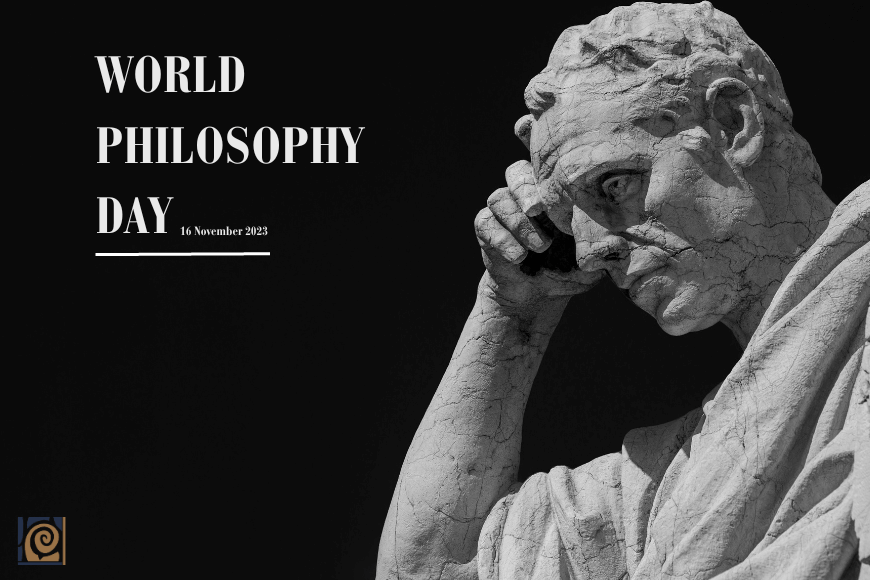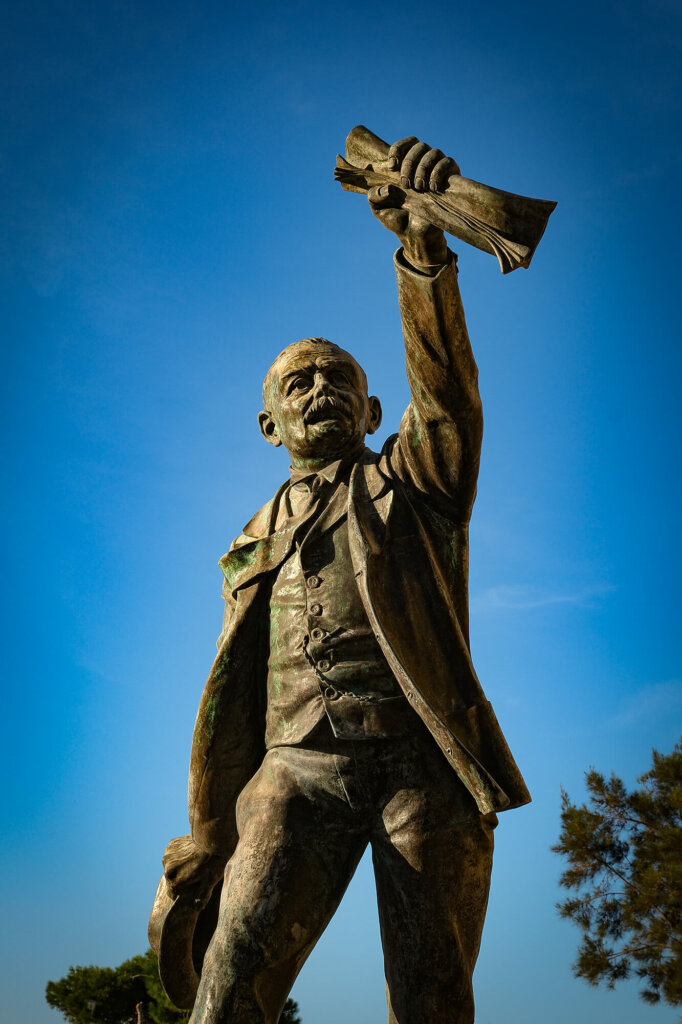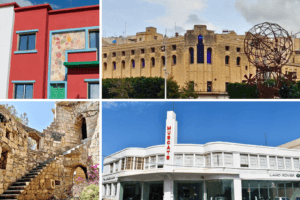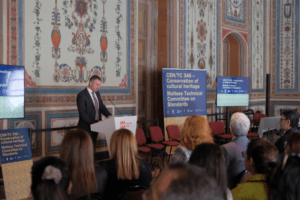
Manwel Dimech: Architect of Maltese Thought on World Philosophy Day
As the world celebrates 𝐖𝐨𝐫𝐥𝐝 𝐏𝐡𝐢𝐥𝐨𝐬𝐨𝐩𝐡𝐲 𝐃𝐚𝐲, an occasion that annually underscores the enduring significance of philosophy on the third Thursday of November, we not only pay homage to the timeless value of philosophical inquiry but also acknowledge its intrinsic connection to culture.
UNESCO stresses the importance of adopting a collective approach towards free, reasoned and informed thinking as an essential tool for societies to reinvent a better world; an instrument not confined to the ivory towers of scholars but accessible to all.
In this spirit, the Superintendence takes this opportunity to shed light on one of the more prominent national philosophers and political advocates, whose radical pursuits for societal change left an indelible mark on the sociocultural fabric of late 19th and early 20th century Malta, resonating even in our contemporary landscape.
Manwel Dimech is often acknowledged as a visionary, his ideas purportedly shaping both the philosophical landscape and the local cultural consciousness. Born in 1860, Dimech’s troubled early years saw him succumbing to a life of crime, spending a considerable portion of his life in the prison system. Paradoxically, this period provided him with the freedom and resources to delve into politics, philosophy, history, and religion, drawing inspiration from the philosophies of Jeremy Bentham, John Stuart Mill, and other British empiricists and utilitarian thinkers.

It was only upon his release that Dimech was transformed into a public figure, advocating openly for societal change. His primary objective was to forge a political class from among the people, especially targeting those without access to formal education. A pivotal moment in Dimech’s public career occurred with the establishment of Ix-Xirka ta’ l-Imdawlin (The League of the Enlightened). This organisation served as an advocate for workers’ rights, a platform for adult education, and a political party all in one. Through this league, Dimech aimed to exert influence in the realms of politics, society, and perhaps even religion. Young idealists, irrespective of social class, flocked to him, marking the beginning of Dimech’s political “revolution.”
Dimech’s belief in the citizen as an active cell in a democratic society is rooted in influences from French republicanism and the secular movement in Europe. Motivated by a desire to see the Maltese worker respond intelligently and foster self-respect, Dimech envisioned citizens engaging not only as laborers but also as full participants in civic life.
However, Dimech’s radical endeavours did not go unchallenged, as he was faced with excommunication and eventual deportation and imprisonment, leading to his untimely death. Despite the resistance Dimech faced during his lifetime, and perhaps through them, his legacy endures as a testament to the intersection between philosophy and culture, and the undeniable impact of this symbiotic relationship.
His work suggests an active acknowledgment of the intrinsic connection between philosophy and culture, regarding philosophy not merely as an abstract pursuit but as a dynamic force capable of shaping and challenging cultural norms. In a society deeply rooted in tradition and largely illiterate, Dimech’s appeal to reason is noted for its impact on fostering critical reflection and contributing to cultural developments.
The impact of Dimech’s ideas on shaping Maltese thought is apparent not only in academic circles but also in the everyday discourse of the Maltese people. By challenging established norms and traditions, he played a role in influencing change. In this context, the philosopher is portrayed as contributing to cultural shifts, guiding society towards a more reflective and conscientious path. Dimech’s distinguishing characteristic was indeed his vision towards social change over immediate political power.
Dimech’s philosophical legacy endures beyond the confines of his time, resonating with contemporary Maltese thought. Scholars, movements, and cultural developments continue to draw inspiration from his ideas. The emphasis on the dynamic relationship between philosophy and culture serves as a reminder that intellectual pursuits are not static; they are living traditions that evolve with society.
As we mark World Philosophy Day, we commemorate not just the historical figures like Dimech but also the living tradition of philosophy itself. It is a tradition that thrives on its ability to adapt, question, and contribute to the cultural DNA of societies worldwide.
In acknowledging philosophers’, like Dimech’s, profound impact on Maltese society, we recognise that philosophy, when rooted in cultural understanding, becomes a powerful force for shaping the narrative of societies across time.



